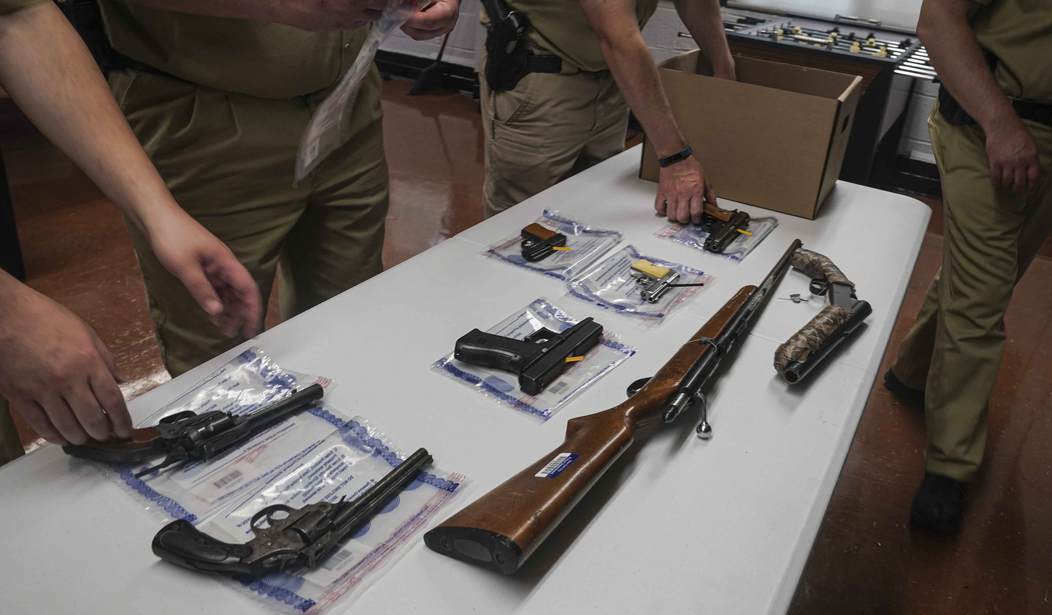Multnomah County District Attorney Mike Schmidt ran for office promising a ““bold, progressive vision” for Portland residents, but since he’s took office last year violent crime, shootings, and homicides have grown to historically high levels. Now Schmidt is doing his best to sound like a tough-on-crime, law-and-order prosecutor, and on Thursday Schmidt unveiled a new Firearm Data Dashboard to prove to residents that his office isn’t going light on those who violate the state’s gun laws.
The dashboard shows that the number of gun-related cases handled by the DA’s office has grown over the past three years, which you would expect given the corresponding rise in violent crime, but other than that there’s not actually a lot of useful information within the data dashboard. Of course, gun control activists don’t see it that way.
Schmidt’s office noted that gun sales nationwideincreased by 65% in 2020 and the trend continued into this year. The district attorney has been “allocating all possible staff time to gun violence,” his office said, as well as participating in a task force with local, state and federal law enforcement agencies and working with community leaders to understand the underlying causes of gun violence.
Rachel Saslow, a volunteer with the Oregon Moms Demand Action, said she hopes the new dashboard will provide the impetus for lawmakers to take more aggressive action to curb the violence, which she described as a “public health crisis.”
“This Firearms Data Dashboard is more than just numbers and data,” Saslow said in a statement. “This dashboard allows everyone from community members to lawmakers to see not only how gun crime affects our communities and families, but how these numbers continue to rise.”
Those numbers continue to rise despite the fact that Oregon lawmakers have approved plenty of gun control over the past few years, including a universal background check law in 2015 and restrictions on the right to carry adopted earlier this year. Saslow may believe that this data dashboard proves the need for more gun control, but to me it looks like more evidence that gun control doesn’t prevent violent crime.
Beyond the data that is collected in the Firearms Data Dashboard, there are some important figures that are missing. For instance, how many of these gun-related prosecutions resulted in a plea deal as opposed to going to trial? What was the average sentence for those who took a plea deal, and how much time were they eligible to receive if they’d be convicted on their original charges?
There are other questions that the data in the dashboard can’t answer: how many cases involve repeat offenders? What is the three-year recidivism rate for those prosecuted for gun-related offenses in Multnomah County? How many cases were referred to the U.S. Attorney’s office for federal prosecution? And while we know how many cases Schmidt’s office has prosecuted this year, how many other cases that were brought to prosecutors were either dismissed or nolle processed?
This could have been a useful took, but unfortunately the new Firearms Data Dashboard looks to me like it’s more about providing talking points for gun control activists than providing Portland residents with a real look at how the Multnomah County District Attorney is responding to the city’s crime spike. Given the fact that there have been more than 800 shooting incidents in Portland since January but fewer than 300 prosecutions for all gun-related offenses (including mere possessory offenses), I’d say the biggest takeaway isn’t that Oregon needs more gun control laws, but that Portland needs to do a better job of arresting and charging violent criminals.









Join the conversation as a VIP Member